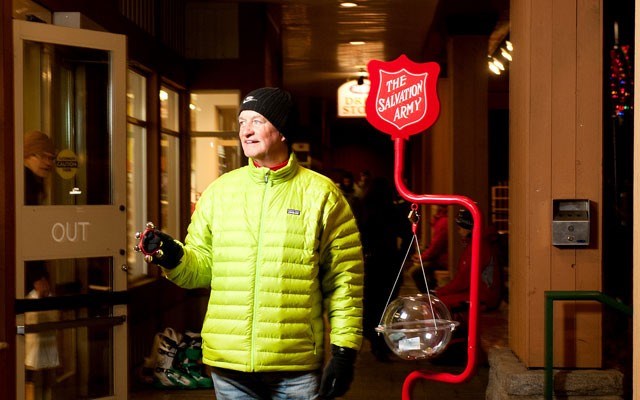Whistler-based organizations and charities are reminding people that it is not too late to help those in need, both locally and around the world.
This season the Community Foundation of Whistler (CFOW) is asking people to consider giving to the Jill Ackhurst Fund.
It's been ten years since Ackhurst died but her memory lives on in Whistler, as does her legacy for giving, now more than ever before.
It's a testament to the work Ackhurst did in her lifetime, both in Whistler and beyond, that her name continues to make a difference a decade after her death through the Jill Ackhurst Social Action Fund.
When Ackhurst's father died recently, leaving the fund $60,000, the CFOW, which manages the fund, challenged the community to match his donation before the end of the year.
Matching donations have been slow to trickle in, admitted the CFOW's executive director Carol Coffey. But there's still time left to give as year-end approaches.
"Jill was one of those people who left a positive legacy for the community. She created the Jill Ackhurst Welcome Dinner, which continues on even now, ten years following her death, helping newcomers to Whistler feel welcome and letting them know that Whistler is a real community," said Coffey.
"As community members think about their year-end charitable giving, we are asking them to consider making a contribution to the Jill Ackhurst Social Action Fund."
The legacy fund was created through the CFOW shortly after Ackhurst died of cancer on Dec. 27, 2003, at the age of 57. The idea was that the fund would grow over time and the interest generated by the investment could fund the work that Ackhurst was so passionate about in her lifetime — creating awareness of the issues affecting the health of communities in the Sea to Sky corridor.
Typically, the holiday season is a time where many charities see a surge in donations, to meet the Dec. 31 deadline for charitable donations, but if the past couple of years have been any indication, it's that a little holiday giving is needed now more than ever.
The CFOW is one of the many local organizations that have struggled with the economy in the past, but they are optimistic heading into the New Year.
Coffey said that 2013 has been a good year for the foundation overall.
"We have bounced back," she said, reflecting on the past 12 months, "There was over $140,000 that we granted out to the community this year."
This is a big improvement from the past couple of years, when the foundation saw a decline in the amount of donations received and was forced to downsize its grants.
"It was difficult because we rely on the investments. There are a lot of groups depending on us in the community."
Coffey explained that the donations are mostly invested in endowment funds. This way, the money can have more of a long-term impact.
"Your donation gives back to the community pretty much forever," she said. "It's a great legacy to leave. This way, you're leaving a personal legacy for the whole community."
Imagine Canada, a national organization that supports Canadian charities, reported in its most recent sector monitor that leaders of charities are more confident now than they were in 2011 and 2012, but 50 per cent are still having trouble fulfilling their missions.
The CFOW grants money to many charities in Whistler, including Zero Ceiling, a local organization that provides adventure-based learning programs to empower at-risk youth, and help them to develop life skills and achieve their personal goals.
"They help us do our work," said Kasi Lubin, executive director of Zero Ceiling, "We can't run our organizations without donations."
Without these grants, it's hard to tell what might happen to some of the programs put on by local charities.
"In the past year the CFOW has helped not only with our life coaching, where they were a partial donor, but they also supported our progressions program," said Lubin.
Coffey hopes people will take advantage of the opportunity to file these donations on their tax returns.
"Not everyone wants to think about their taxes at Christmas time, but it's a great time of year for people to think about giving," she said.
Registered charities in Canada are allowed to issue receipts to donors that can be applied to your tax return. According to the Canadian Revenue Agency, the Canadian Tax System provides a federal non-refundable donation tax credit equal to 15 per cent of the amount for the first $200 on annual donations. The tax credit increases after the first $200 to 29 per cent of the amount, up to a limit of 75 per cent of your net income.
For a list of all registered charities in Whistler, visit http://www.cra-arc.gc.ca/chrts-gvng/lstngs/menu-eng.html. Type "Whistler" in the charity name box for the complete list.




